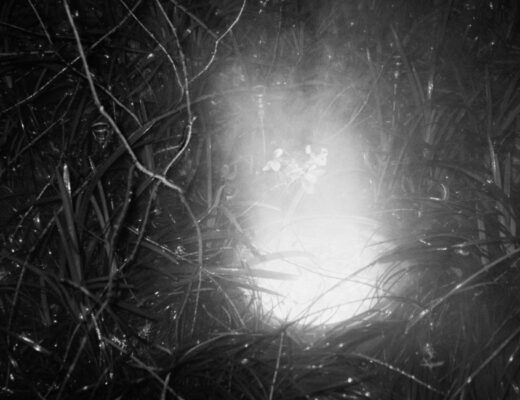Having first reached the festival circuit in December 2020 at the Cairo International Film Festival, the Mainland Chinese entry for competition at this year’s NYAFF is Anima: the prestige, internationally-oriented “issues” film of the year and directorial debut of newcomer Cao Jinling. The film tells the tale of two lumberjack brothers, Linzi (Wang Chuanjun) and Tutu (Si Ligeng), of the forest-dwelling minority Lonki tribe of northern Inner Mongolia, as their near-prelapsarian youth spent in respectful subsistence with the woods gives way to an adulthood riven with compromises and difficulty as familial tension, sexual politics, nature’s unpredictability, and black-market crime bear upon each sibling as the nation’s modernization drive reconfigures not only their existence but the world around them. By all accounts, the film fits the ethnic minority cinema template almost to the letter, hitting all the notes one would expect dramatically in performance and tone, assuming the mandatory pensive, slow rhythms that signal stress and reflection, and ticking off the narrative beats that underscore the disenfranchised frustration common to the genre. Indeed, much like Cao’s other film of the year — the state-produced COVID-19 documentary Days and Nights in Wuhan — it’s an industry export picture that feels largely anonymous as.
Where the film does excel is largely on the technical side, with famed composer Lim Giong and legendary cinematographer Mark Lee Pingbing doing strong work as ever. Particularly in the case of the latter, it’s difficult to not get the sense that the chance to photograph such undeniably striking landscapes was too good an opportunity to turn up. Additionally, the performance offered by arthouse veteran Qi Xi — here, a hunter and widow who quickly claims Linzi as her man, much to Tutu’s consternation — stands out as the film’s strongest due to the intensity and measure she brings to the film’s one truly proactive character. But even these commendations only serve to highlight the mostly reflexive and automatic character of Anima’s production. While it’s differentiated from other films that fall under its categorization (e.g., Lü Yue’s much worse, hysterical child-kidnapping drama Lost, Found, or the much better Tibetan esoterica of Pema Tseden’s Jinpa or Balloon) due, at once, to both its mannered restraint and seriousness and the surprising decision to pursue a finale informed by where a disaster film (for instance, Feng Xiaogang’s Aftershock) usually begins, it leaves all too much unconsidered and even more unsaid regarding the environmental issues ostensibly motivating it. As such, when the film’s concluding shot hits — that of a wooden toy airplane flying over the picture’s Mongolian forest setting — it’s hard not to feel that the film hasn’t really been doing anything other than floating far above and away from its concerns.
Published as part of NYAFF 2021 — Dispatch 5.







